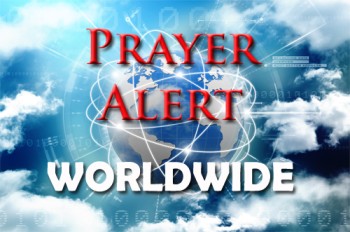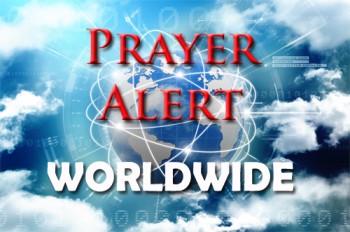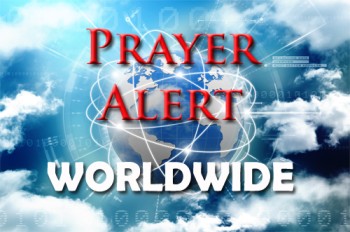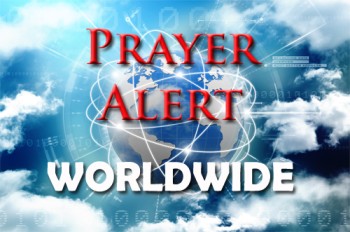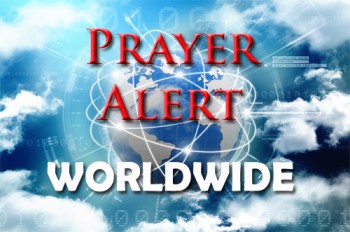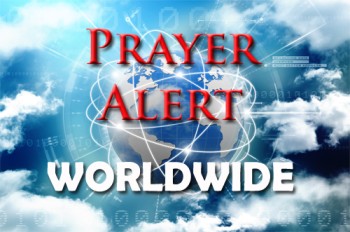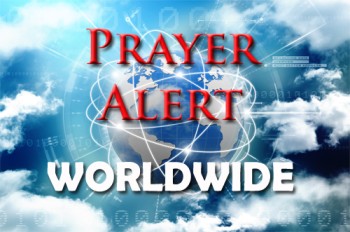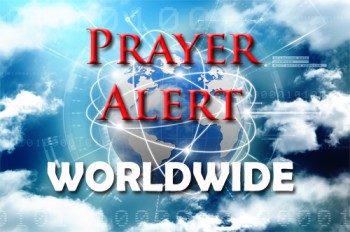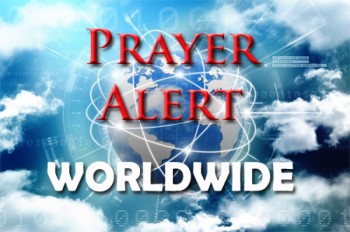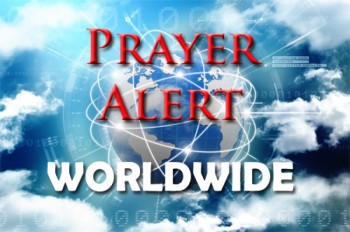Displaying items by tag: Africa
Burkina Faso: ‘Will we survive another 24 hours?’
Burkina Faso is shaken by political conflict and military coups. ‘Attacks against Christians are common. Many don’t know if they will survive another day. They see loved ones beheaded, raped or reduced to sexual slavery’, said Father Rouamba. He said that Christians are affected on a daily basis by the appalling actions of Al-Qaeda and IS. Terrorists began targeting Christians in Kompienga Province, east Burkina Faso, around Pentecost this year. ‘If people refuse to convert to Islam, they are forced to leave, but as the roads are blocked, they are left to wander around in the forest with no possessions, and many die due to lack of food. These are real tragedies that are not reported in the media.’ Father Rouamba wants to set up support units, offering spiritual and psychological support. Christians who had, to some extent, abandoned religious practice before the crisis are returning to their faith at a time when terrorists are trying to extinguish Christianity.
Kenya: Africa climate summit
A climate summit in Nairobi has seen dozens of world leaders discuss climate solutions for Africa’s 1.3 billion people affected by climate change. Africa is the fastest-growing continent, and the most vulnerable to climate change. 85% of the worst-hit countries in the climate crisis are African. The Daily Nation newspaper proclaimed this gathering ‘Africa's moment.’ Kenya’s president Ruto came to power with climate change relief and accountability cornerstones of his foreign policy. Addressing the conference, he claimed, ‘Climate change is crimping Africa’s economic growth annually by 5 to 15%, despite Africa accounting for less than 4% of global emissions.’ The intention was for delegates to come to see resource-rich African states as crucial stakeholders in the green economy. Africa’s abundance of natural resources only receives 3% of global energy investments. The summit’s outcome sees nations promising financial solutions to climate-induced food insecurity, finding technical resolutions to food scarcity and storage, and making African markets attractive to investors.
South Africa: Johannesburg fire amid housing issues
On 31 August a building being used as ‘informal’ housing for some 200 homeless people caught fire with at least 73 people dying. They lived in a maze of shacks and makeshift structures inside the five-storey building. Seven victims were children, 52 are injured, and the death toll is expected to rise. Johannesburg has widespread poverty and joblessness, and 15,000 homeless people. The head of Human Settlements said some of the victims may have been renting from criminal gangs illegally collecting fees. Johannesburg’s mayor said that the city administration is aware that many such ‘hijacked’ buildings exist and are rented out by cartels preying on the vulnerable. Because most of them are in the hands of cartels and the city suffers from chronic power shortages, residents resort to candles for light and wood fires for heat. This fire demonstrates a chronic criminalised housing problem.
Nigeria: Fulani militant attacks worsen
Following the killing of 21 Christians and critical injuries to ten more in the Plateau by Fulani militants, believers are increasingly at risk and calling for action from leaders. The violence erupted when Fulani herdsmen set buildings alight in Heipang, an area where many displaced Christians from surrounding villages have been staying. Masara Kim, a Jos journalist, told a Catholic charity that after setting the houses ablaze, they aimed their assault rifles at those trying to flee from the fires. He said, ‘About half of the victims were burnt beyond recognition. At least five of them were infants. It was a heartbreaking scene to witness. They were given a mass burial in a rain-soaked mass grave. These are poor villagers who do not even have money for food, much less for coffins. There were witnesses, but authorities failed to identify the perpetrators.’
Ethiopia: risk of another civil war
An airstrike in Ethiopia’s Amhara region has killed 26 people, as detailed widespread killings of civilians broke out this month. Fano militiamen had flooded towns and cities in Amhara, briefly taking over several of them; they attacked police stations and garrisons, freed prisoners and intermittently took control of Lalibela airport. Early in August federal forces managed to push them out. Ethnic tensions and land conflicts lie behind Amhara’s clashes. This fighting is Ethiopia’s biggest security crisis since the civil war in neighbouring Tigray ended in November 2022, but there is now a state of emergency. Many had hoped Ethiopia was inching back towards stability and away from a conflict that caused hundreds of thousands of deaths. Prime minister Abiy Ahmed’s reputation as a Nobel-prizewinning peacemaker is being shredded. He had hoped to reach deals with the IMF and the World Bank to rescue Ethiopia’s war-wrecked economy.
Democratic Republic of Congo: IS-affiliated extremism
The Allied Democratic Force (ADF), which operates primarily out of the DRC, is a violent extremist group that is gaining power in Central Africa. The known IS affiliate is notorious for targeting Christians in its violent campaigns to establish an Islamic caliphate in the region. A widening recruitment network and an increase in funding overseas contributed to ADF’s bloodiest year yet. While IS lost much of its power and control in Syria and Iraq, its affiliate groups in Afghanistan, the Sahel region, and Central Africa grew stronger. The ADF was listed as one of the worst terrorist groups in 2022. Pray for an end to ADF-led violence in this region. Pray for God to protect Christians throughout the DRC. Pray also for the group’s funding and recruitment network to be cut off.
Zimbabwe: elections
On 23 August citizens will vote in presidential and legislative elections. President Emerson Mnangagwa is seeking re-election; Nelson Chamisa is running for the newly created Citizens’ Coalition for Change. The presidency is decided by absolute majority; for the legislature, the National Assembly, 210 of the 270 total seats are single-member constituencies. The remaining 60 seats are reserved for women parliamentarians and are awarded proportionally. The Zimbabwe Electoral Commission (ZEC) is responsible for administering the vote. With no meaningful reforms to ensure ZEC’s independence and the uneven playing field for political parties, international rights groups are expressing concerns over whether the country is capable of holding credible and fair elections. The president misuses state resources for campaigning, and last year relatives of ruling party politicians and loyalists were appointed to the ZEC as election commissioners. Police block opposition party meetings and rallies, and public broadcasters give preferential coverage to the ruling ZANU-PF party.
Burkina Faso: terrorists and mission
Shopkeepers near the Togolese border were returning from a day at the market when terrorists attacked, killing more than twenty people. It is a disturbing trend. Terrorists have killed more than 5,000 people so far this year. Helen Williams of World Missionary Press (WMP) says local ministries are being cautious. ‘As far as we know and from everything I’ve heard, the ministry work continues. It may have restrictions and be a little bit more difficult, but the work goes on. WMP recently sent Scripture booklets to a ministry that goes into villages. I don’t know if that’s been restricted – going into different places. But we sent them a shipment of material in French and had reports and photos from them going home-to-home, having open-air campaigns and planting churches in one particular village. Eight million people who speak the Moore language they have just received their first shipment of that language. They are overjoyed.’
Sudan: Sinking deeper into civil war
The International Criminal Court has opened another war crimes probe after three months of war between feuding generals. 87 bodies were buried in a mass grave by the Rapid Support Forces (RSF) paramilitary group prompting a UN warning of possible new massacres in Darfur. The ICC has been investigating crimes in Sudan's Darfur region since 2005. The UN Security Council charged former leader Omar al-Bashir with genocide and crimes against humanity - murder, rape and torture. Allegations of similar atrocities have mounted during recent fighting. UN officials are calling for the warring sides to face accountability. About 3,000 people have been killed and three million displaced since violence erupted between Sudan’s army chief Abdel Fattah al-Burhan and his former deputy Mohamed Hamdan Daglos. The UN warns history could repeat itself - the people of Darfur have lived with uncertainty, pain and the scars of conflict for almost two decades.
Nigeria: Bishop dismissed Islamising fears
Speaking to Aid to the Church in Need, Bishop Kukah of Sokoto, who criticised previous governments’ failure to curb extremist violence and protect Christians, welcomed the new president, Bola Tinubu, and vice-president, Kashim Mustapha, despite fears over them both being Muslims. Bishop Kukah said he has known Tinubu for 20 years and has worked with Kashim Shettima. Referring to the fact that Tinubu is married to a Christian, Shettima said a man who has not Islamised his family will not Islamise Nigeria. Bishop Kukah stressed that politicians should not be assessed by their religion but by their capacity and competence and how they see justice, fairness, and equity, adding ‘Of course, I would like a Catholic president, but he would not govern Catholics, he would govern Nigeria.
